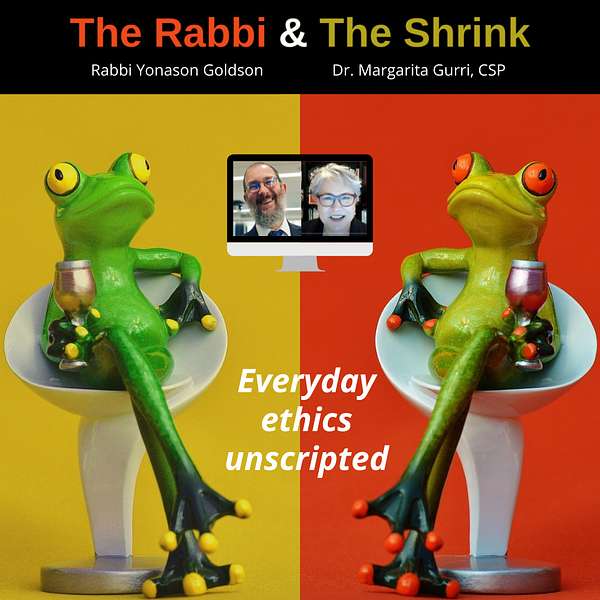
The Rabbi and The Shrink
What do you get when you cross an Orthodox hitchhiking rabbi and a Catholic Cuban psychologist? An award-winning podcast with unpredictable conversations about everyday ethics and the secrets for successful relationships in business, family, and community.
Contact us with questions and comments: http://therabbiandtheshrink.com/ Podcast@TheRabbiandTheShrink.com
The Rabbi and The Shrink
Archive Episode #57: Train your Brain to Succeed w/ Dr. Melissa Hughes
What do you do to be a bad boss?
What’s the greatest gift you can give?
Would you talk to another person the way you talk to yourself?
These and other fascinating questions are addressed when Brain Science maven Melissa Hughes, Ph.D. joins The Rabbi and the Shrink.
https://www.linkedin.com/in/melissahughesphd/
https://www.melissahughes.rocks/
2:00 Knowing our past gives us a sense of direction for the future
From 4th grade teacher to neuroscience researcher
We all have access to information; how are we using it?
6:30 What do you do to be a bad boss?
Traditional hierarchy vs. teams
Psychological safety and Maslow’s hierarchy of needs
We all want to feel that we belong
Innovation is all about challenging the status quo
“This is how we do it” vs. “Can we do it better?”
11:00 Who is wise? One who learns from every person
We have to know what works, but also what doesn’t work
Obstacles vs. challenges: the brain loves challenges
Leaders who listen to employees create a culture of problem solving
15:00 The best way to learn is to teach
We all teach and we all learn
We all contribute and we’re all recognized
The brain doesn’t differentiate between physical and emotional threats
Diversity of perspective leads to full understanding
What’s the greatest gift we can give?
19:30 When we contribute we fee ownership and control
Patterns and self-fulfilling prophecies
We notice what we’re looking for
Would I talk to another person the way I talk to myself?
Showing gratitude benefits us more that the object of our appreciation
25:00 The brain’s bouncer
The brain let’s in what we tell it to
29:30 The word of the day: Adumbrative
serving to foreshadow; faintly indicative
We create our own reality through our experiences, habits, and expectations